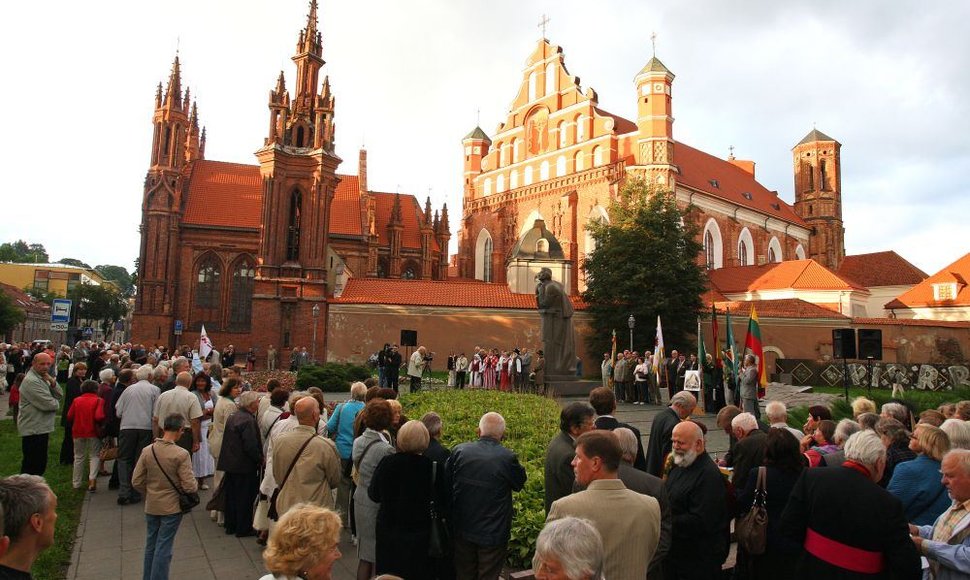On the occasion of the anniversary, forum "Telling the Truth to Destroy the Evil Empire," attended by participants of the rally on 23 August 1987, signatories to the Act of Independence, members of the Seimas as well as representatives of public and youth organizations, will take place at the Seimas.
Other events to mark the occasion include an exhibition and a march to the monument where the rally was held 25 years ago.
"It was a sign that changes in the entire Soviet Union, including Lithuania, were inevitable, and no one could stop the free word," Prime Minister Andrius Kubilius said in an interview to the Žinių Radijas (News Radio) on Thursday.
According to the prime minister, the rally and subsequent demonstrations, the Baltic Way in 1989 held to mark the signing anniversary of the Molotov-Ribbentrop Pact between Nazi Germany and the Soviet Union made 23 August a day of manifestations.
"Lithuania has achieved so much over these years we could have only dreamt of and thought those were unreal fantasies 22 or 25 years ago. Lithuania is a member of the EU and NATO, and we can bravely say there will be no more Molotov-Ribbentrop pacts in Europe. In this respect we have progressed very much," Kubilius said.
Despite the ban of the then Soviet administration in Lithuania, a rally to mark the anniversary of the Molotov–Ribbentrop Pact between the Soviet Union and Nazi Germany was staged near Mickiewicz Monument in Vilnius on 23 August 1987. The pact and its secret protocols divided Eastern Europe into spheres of influence and led to the occupation of the Baltic states in 1940. participants condemned the pact and its consequences for Lithuania's statehood and demanded liquidation of the Pact's consequences and freedom for Lithuania.
Two years later on the same day, around two million citizens of Lithuania, Latvia and Estonia joined their hands to form a human chain spanning over 600 kilometers across the three Baltic states to demonstrate their determination to be free.












